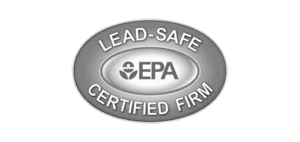Imagine walking into a room after a mishap in the kitchen. The air is thick, filled with the unmistakable scent of smoke. Your eyes begin to water, and your chest feels heavy as you take in a deep breath. It’s a familiar sensation, one that brings back memories of past encounters with smoke damage.
Smoke damage, whether from a house fire or another source, can leave a lasting impact on both our physical and emotional well-being. It’s not just the visible signs of damage that we should be concerned about; there are hidden dangers lurking in the aftermath of smoke-filled situations.
In this article, we will explore the various ways in which smoke damage can make you sick, shedding light on the health risks and respiratory issues that can arise from exposure to smoke particles. Understanding the impact of smoke damage is crucial for protecting ourselves and those we care about.
Let’s dive in and uncover the truth about smoke damage and its potential to harm our health.
Understanding Smoke Damage and Its Health Implications
Smoke damage occurs when smoke particles settle on surfaces and penetrate materials within a space. These particles can be released into the air over time, leading to ongoing exposure for individuals in the affected area. The health implications of smoke damage are significant, as the particles can contain harmful substances such as carbon monoxide, volatile organic compounds (VOCs), and other toxic chemicals, depending on the source of the smoke.
These substances can trigger respiratory problems, cardiovascular issues, and other health conditions. prolonged exposure to smoke damage can lead to more severe and long-lasting health risks, including the development or worsening of chronic respiratory conditions such as asthma, bronchitis, and emphysema. Studies have also suggested a link between long-term exposure to smoke damage and an increased risk of lung cancer, cardiovascular diseases, and even premature death.
It is important to address smoke damage promptly to minimize these long-term risks. Professional smoke damage cleanup is essential to ensure the removal of harmful smoke particles and minimize health risks. Trained technicians equipped with specialized tools and cleaning agents can effectively eliminate smoke residues and restore indoor air quality. Without proper cleanup, smoke particles can linger, causing ongoing health hazards. Taking preventative measures, such as ensuring proper ventilation, using air purifiers with HEPA filters, and staying informed about local air quality advisories, can also help protect yourself from the health implications of smoke damage.
The Short-Term Health Effects of Smoke Exposure
Smoke exposure, even in the short term, can have adverse effects on health. When individuals are exposed to smoke, whether from a house fire, tobacco smoke, or environmental factors like wildfires, it can lead to various immediate health effects.
The most common short-term health effects of smoke exposure include:
- Coughing: Smoke irritates the airways, causing a persistent cough.
- Wheezing: Breathing in smoke can constrict the airways, leading to wheezing sounds during breathing.
- Shortness of breath: The inhalation of smoke particles can make it difficult to breathe, resulting in a sensation of breathlessness.
- Irritated eyes: Smoke can cause redness, itching, and irritation in the eyes.
- Throat irritation: Smoke can cause a sore throat, dryness, or a feeling of scratchiness in the throat.
Individuals with pre-existing respiratory conditions, such as asthma or chronic obstructive pulmonary disease (COPD), may experience exacerbated symptoms when exposed to smoke. The smoke particles can further irritate their already sensitive airways, leading to increased coughing, wheezing, and shortness of breath.
Smoke exposure also increases the risk of developing respiratory infections such as bronchitis or pneumonia. The inhalation of smoke weakens the respiratory system’s defenses, making it easier for viruses and bacteria to invade the lungs and cause infection.
It is important to note that the severity of the short-term health effects of smoke exposure can vary depending on factors such as the duration and intensity of the exposure, as well as an individual’s overall health and susceptibility.
Long-Term Risks Associated with Smoke Damage
Prolonged exposure to smoke damage can have significant health implications. Continuous contact with smoke particles can lead to the development or worsening of chronic respiratory conditions such as asthma, bronchitis, and emphysema. These conditions can significantly impact an individual’s quality of life and require ongoing medical management.
Moreover, studies have indicated a concerning link between long-term exposure to smoke damage and an increased risk of developing serious health conditions. One of the most alarming potential consequences is the heightened risk of lung cancer. The toxic substances present in smoke particles can penetrate deep into the lungs, damaging the delicate tissues and potentially causing the formation of cancerous cells.
Furthermore, long-term exposure to smoke damage has been associated with an elevated risk of cardiovascular diseases. The chemicals and particles in smoke can trigger inflammation and oxidative stress in the body, leading to a higher likelihood of heart attacks, strokes, and other heart-related ailments.
Perhaps the most alarming long-term risk associated with smoke damage is the potential for premature death. Studies have shown that individuals exposed to prolonged smoke damage are more likely to experience a shortened lifespan compared to those who are not exposed. The combination of respiratory issues, increased cancer risk, and cardiovascular complications contributes to this heightened mortality rate.
Given the long-term risks associated with smoke damage, it is crucial to address this issue promptly and take necessary precautions to minimize exposure. This may involve professional smoke damage cleanup, implementing effective ventilation systems, and using air purifiers with HEPA filters to improve indoor air quality.
Can Smoke Damage Make You Sick?
Yes, smoke damage can potentially result in various illnesses. The harmful substances found in smoke particles can irritate the respiratory system, leading to conditions such as respiratory infections, bronchitis, and pneumonia. Prolonged exposure to smoke damage may also increase the risk of developing chronic respiratory diseases and certain types of cancer. Vulnerable populations, such as children, the elderly, and individuals with compromised immune systems, are particularly susceptible to these health risks.
Vulnerable Populations: Who is at Greater Risk?
Certain individuals and groups are more vulnerable to the health effects of smoke damage. This includes children, older adults, pregnant women, individuals with pre-existing respiratory conditions, and those with compromised immune systems. Their bodies may have a reduced ability to tolerate or recover from the harmful effects of smoke particles.
Exposure to smoke can pose a greater risk to these vulnerable populations, as their respiratory systems may already be compromised or sensitive. Children, for example, have developing lungs that are more susceptible to damage. Older adults often have pre-existing respiratory conditions that can be exacerbated by smoke exposure. Pregnant women need to be especially cautious, as smoke can harm both the mother and the developing fetus. Individuals with pre-existing respiratory conditions, such as asthma or chronic bronchitis, may experience more severe symptoms when exposed to smoke particles. And those with compromised immune systems, such as individuals undergoing cancer treatment or living with HIV/AIDS, are at increased risk of developing infections from smoke exposure.
To prevent serious health complications, it is crucial to take extra precautions to protect these vulnerable populations from smoke damage. This can include creating smoke-free environments, implementing proper ventilation systems, using air purifiers with HEPA filters, and providing respiratory protective equipment when necessary. Additionally, it is essential to stay updated on local air quality advisories and take prompt action to minimize exposure during periods of increased smoke pollution, such as wildfires.
Professional Smoke Damage Cleanup and Health
Professional smoke damage cleanup is essential to ensure the removal of harmful smoke particles and minimize health risks. Trained technicians equipped with specialized tools and cleaning agents can effectively eliminate smoke residues and restore indoor air quality.
Without proper cleanup, smoke particles can linger, causing ongoing health hazards. The lingering smoke particles can continue to release toxins into the air, leading to respiratory problems, allergic reactions, and other health issues. Additionally, the odor of smoke can be persistent and difficult to eliminate without professional intervention.
Professional smoke damage cleanup is especially crucial for large-scale smoke damage incidents, such as house fires or industrial accidents. In these cases, the extent of the damage and the potential health risks are heightened. Trained professionals have the expertise to assess the damage and implement the necessary cleaning and restoration techniques to ensure the space is safe and habitable again.
Preventative Measures to Protect Yourself from Smoke Damage
While it is not always possible to prevent smoke damage entirely, there are measures you can take to reduce your exposure and protect your health.
- Ensure proper ventilation in indoor spaces to allow for the circulation of fresh air.
- Use air purifiers with HEPA filters to remove smoke particles from the air.
- Avoid smoke-filled environments, such as areas affected by wildfires or heavy pollution.
- Wear appropriate protective gear when exposed to smoke particles, such as masks or respirators.
- Stay informed about local air quality advisories and take necessary precautions during periods of increased smoke pollution.
Conclusion
Exposure to smoke damage can have significant health risks, both in the short-term and long-term. The inhalation of smoke particles can result in respiratory issues and exacerbate existing conditions. Additionally, long-term exposure to smoke damage has been linked to the development of chronic illnesses and an increased risk of certain cancers. Vulnerable populations, such as children and the elderly, are particularly susceptible to these health risks.
To protect yourself from the harmful effects of smoke damage, it is essential to take preventative measures. Ensuring proper ventilation in indoor spaces, using air purifiers with HEPA filters, and avoiding smoke-filled environments can help reduce exposure. Wearing appropriate protective gear, such as masks, is also recommended when exposed to smoke particles.
Promptly addressing smoke damage through professional cleanup is vital. Trained technicians equipped with specialized tools and cleaning agents can effectively remove smoke residues and restore indoor air quality, minimizing ongoing health hazards. Stay informed about local air quality advisories, especially during periods of increased smoke pollution such as wildfires, and take necessary precautions to safeguard your health and well-being.
FAQ
Can smoke damage make you sick?
Yes, smoke damage can potentially result in various illnesses. The harmful substances found in smoke particles can irritate the respiratory system, leading to conditions such as respiratory infections, bronchitis, and pneumonia. Prolonged exposure to smoke damage may also increase the risk of developing chronic respiratory diseases and certain types of cancer. Vulnerable populations, such as children, the elderly, and individuals with compromised immune systems, are particularly susceptible to these health risks.
What are the short-term health effects of smoke exposure?
Smoke exposure, even in the short term, can have adverse effects on health. The immediate health effects of smoke exposure include coughing, wheezing, shortness of breath, irritated eyes, and throat irritation. Individuals with pre-existing respiratory conditions, such as asthma or chronic obstructive pulmonary disease (COPD), may experience exacerbated symptoms. Additionally, exposure to smoke can increase the risk of respiratory infections, such as bronchitis or pneumonia.
What are the long-term risks associated with smoke damage?
Prolonged exposure to smoke damage can lead to more severe and long-lasting health risks. Chronic respiratory conditions, including asthma, bronchitis, and emphysema, may develop or worsen due to continuous exposure to smoke particles. Studies have also suggested a link between long-term exposure to smoke damage and an increased risk of lung cancer, cardiovascular diseases, and even premature death. It is essential to address smoke damage promptly to minimize these long-term risks.
Who is at greater risk of smoke damage?
Certain individuals and groups are more vulnerable to the health effects of smoke damage. This includes children, older adults, pregnant women, individuals with pre-existing respiratory conditions, and those with compromised immune systems. Their bodies may have reduced ability to tolerate or recover from the harmful effects of smoke particles. Taking extra precautions to protect these vulnerable populations is crucial to prevent serious health complications.
How can professional smoke damage cleanup help protect health?
Professional smoke damage cleanup is essential to ensure the removal of harmful smoke particles and minimize health risks. Trained technicians equipped with specialized tools and cleaning agents can effectively eliminate smoke residues and restore indoor air quality. Without proper cleanup, smoke particles can linger, causing ongoing health hazards. Professional cleanup is especially crucial for large-scale smoke damage incidents, such as house fires or industrial accidents.
What preventative measures can be taken to protect yourself from smoke damage?
While it is not always possible to prevent smoke damage entirely, there are measures you can take to reduce your exposure and protect your health. These include ensuring proper ventilation in indoor spaces, using air purifiers with HEPA filters, avoiding smoke-filled environments, and wearing appropriate protective gear when exposed to smoke particles. It is also essential to stay informed about local air quality advisories and take necessary precautions during periods of increased smoke pollution, such as wildfires.









